Muslim Americans are seen the biggest victims of discrimination in the US today, but most Americans view Islam as more violent than other religions
More Americans believe Muslims in the United States experience a great deal of discrimination than think that is true for other groups. Seven in ten in the latest Economist/YouGov Poll say that Muslims face either a great deal or a fair amount of discrimination in America today.
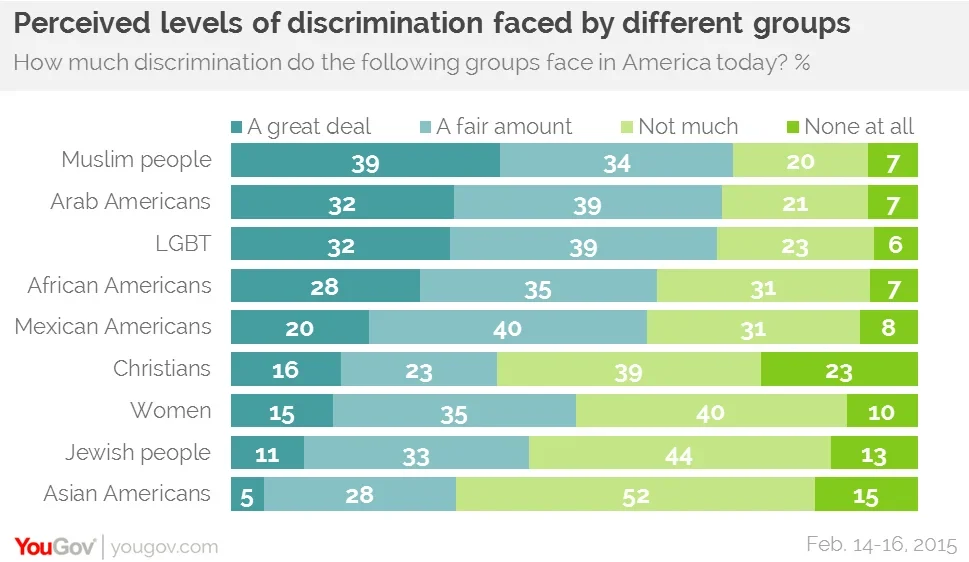
Arab Americans are also perceived as experiencing significant discrimination, and so are lesbians, gays, bisexuals and transgender people. Somewhat fewer, 63%, say blacks experience at least a fair amount of discrimination today.
Democrats are much more likely than Republicans to say Muslims experience a “great deal” of discrimination: 53% of Democrats and just 27% of Republicans think this. But a majority of Republicans say that Muslims are subject to at least a “fair amount” of discrimination. Less than half of Republicans say that is true for African-Americans.
Blacks are much more likely than others to perceive discrimination against themselves and against Muslims. 78% of African-Americans say there is a “great deal” of discrimination against blacks today, and 58%, more than any other group, see a “great deal” of discrimination against Muslims.
The recent killing of three Muslim American students in North Carolina has been explained as either a dispute over parking, or as a hate crime. By better than two to one, Americans think that the alleged shooter should be charged with a hate crime under the North Carolina law. Democrats are more sure than Republicans that this should happen, women more sure than men, and blacks more sure than whites.
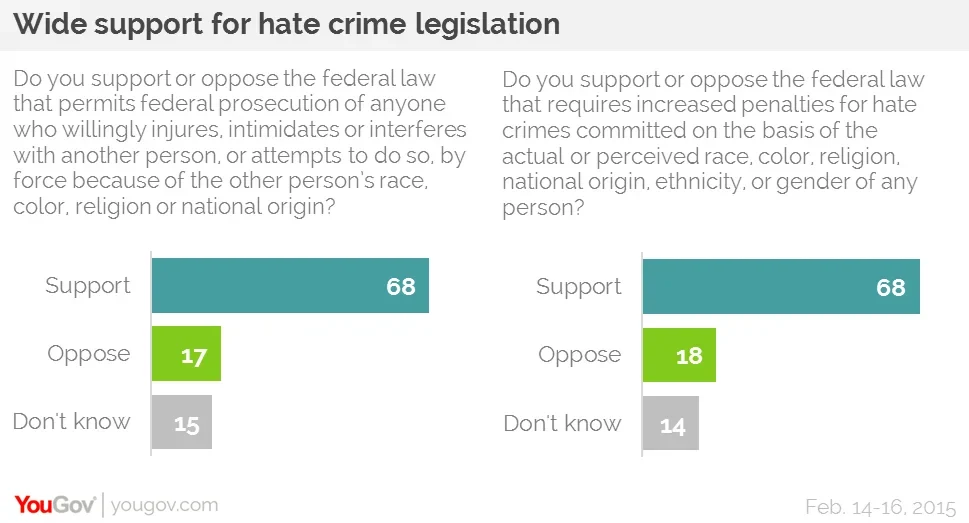
Americans support hate crime legislation in general. Two-thirds support increased penalties for hate crimes and the same percentage supports the law that permitted federal prosecution of anyone who hurts another person because of their race color, religion or national origin.
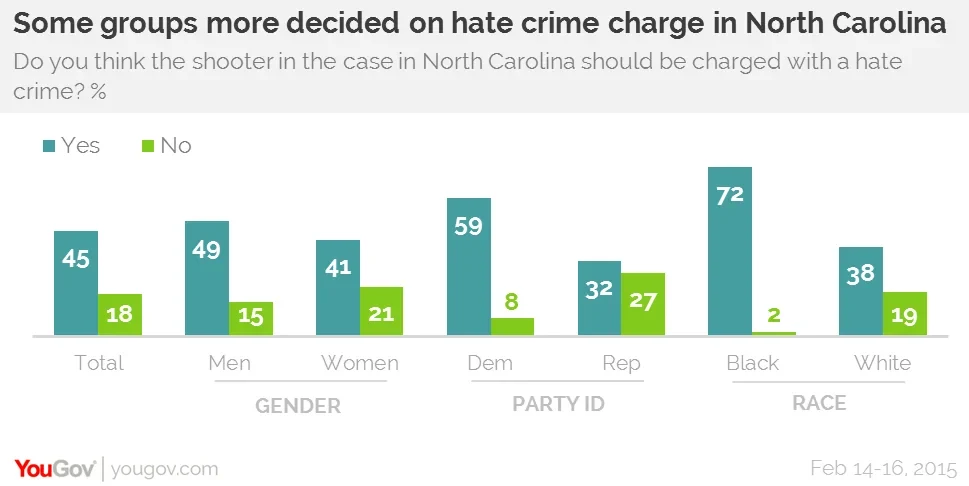
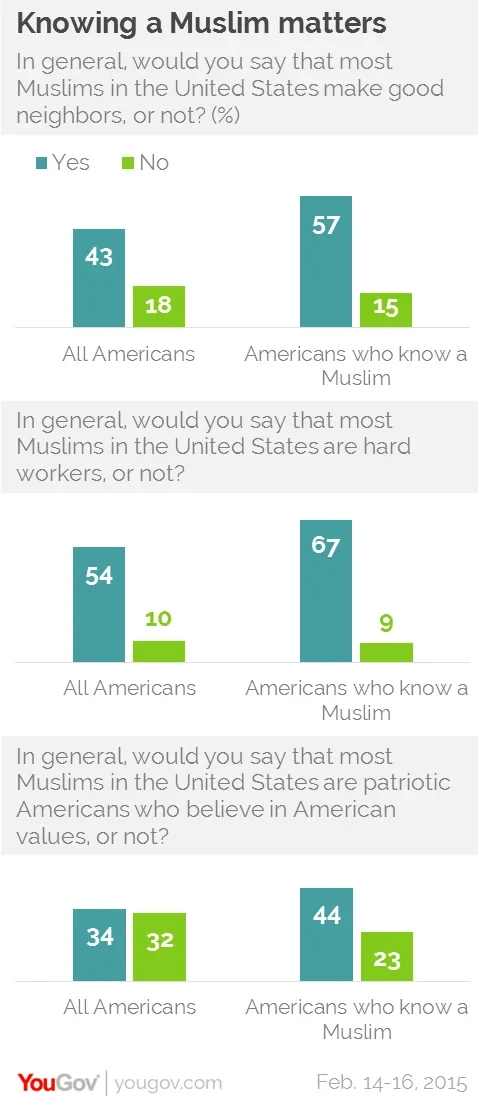
Just over a third of American adults say they know someone who is Muslim. Half of those who live in the Northeast say they do, higher tha the percentages in other regions. But Americans perceive discrimination against Muslims in the United States whether or not they know someone personally,
There are differences in assessing Muslims depending on whether or not people know a Muslim. Those who know a Muslim personally are much more likely to regard them as good neighbors and as hard-working. Americans generally think Muslims are both, but those who have personal contact are more likely to believe the positive assessments.
There are many, even among those with personal knowledge, who express no opinion on these two questions.
However, Americans harbor suspicions about Muslims and their religion. The doubts may even be the reasons why many believe Muslims are being discriminated against. As many Americans say most Muslims are not patriotic as say they are. Those who know a Muslim personally think differently on this question. And Americans divide evenly when asked if the Islamic religion is more likely than other religions to encourage violence. On this questions those who know Muslims are not that much different.
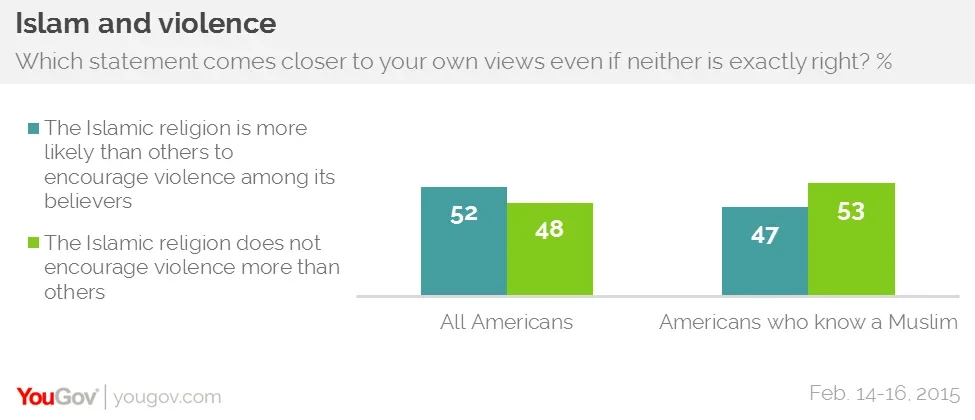
Economist/YouGov poll archives can be found here.







